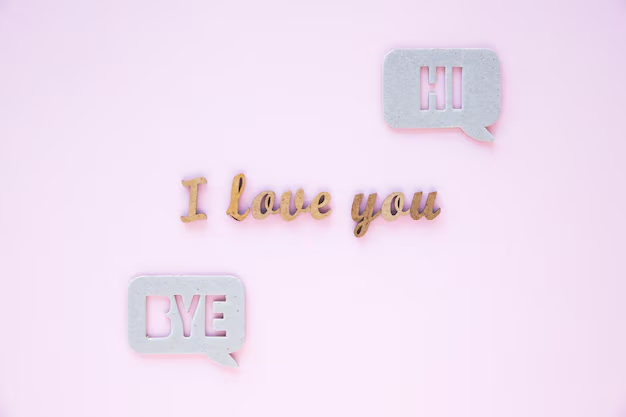I Love You In French: The Best Expressions for Romance
There’s something undeniably magical about expressing love in French. Whether you’re planning a romantic trip to Paris, wooing a French-speaking partner, or simply want to add some romance to your linguistic repertoire, mastering the art of saying “I love you in French” can elevate your romantic game to new heights.
Table of Contents
Introduction: Why Saying “I Love You in French” is Special

French has long been considered the language of love and romance. Its melodic sounds, smooth pronunciation, and rich vocabulary make it perfect for expressing deep emotions. Unlike English, French offers various nuanced ways to express affection, each carrying subtle differences in meaning and intensity.
The phrase “I love you in French” isn’t just a direct translation—it’s an experience that captures the essence of romance in a culture that celebrates love in all its forms. From the soft cadence of “Je t’aime” to the passionate declaration of “Je suis fou de toi,” French expressions of love offer a spectrum of emotion that can precisely communicate your feelings.
The Essential “Je t’aime” Breakdown
Pronunciation (Crucial!)
The most fundamental expression of love in French is “Je t’aime” (I love you). Here’s how to pronounce it correctly:
- Je: Pronounced like “zhuh” (soft ‘j’ sound)
- t’aime: Pronounced like “tem” (with a soft ‘a’ sound)
- Full phrase: “zhuh tem”
Common pronunciation mistakes to avoid:
- Don’t pronounce the “J” as in “Jack” or “Jill”
- Don’t stress the wrong syllable (stress should be on “aime”)
- Don’t add an American ‘r’ sound to the end
Practice tip: Try whispering “Je t’aime” first to get the soft sounds right, then gradually increase volume while maintaining the gentle pronunciation.
Meaning & Context
“Je t’aime” translates directly to “I love you” in English. However, in French culture, these words carry significant weight. Unlike in some English-speaking countries where “I love you” might be used casually, “Je t’aime” typically expresses deep romantic love and commitment.
While “Je t’aime” is primarily used for romantic love, it can also be used between family members. However, the context and tone change significantly when used between friends or family versus romantic partners.
Beyond “Je t’aime”: Expanding Your Romantic Vocabulary

“Je t’adore”
Pronunciation: “zhuh tah-door” Meaning: “I adore you”
“Je t’adore” expresses a strong fondness or admiration. It’s less intense than “Je t’aime” and can be used in both romantic and non-romantic contexts. Think of it as equivalent to saying “I really like you” or “I adore you” in English.
When to use it: Early in a relationship, when expressing admiration for someone’s qualities, or as a playful expression of affection.
“Je t’aime bien”
Pronunciation: “zhuh tem bee-en” Meaning: “I like you a lot”
Be careful with this one! While it contains “Je t’aime,” the addition of “bien” actually reduces the intensity. This phrase is most commonly used to express friendly affection rather than romantic love.
Potential misunderstanding: If someone says “Je t’aime” and you respond with “Je t’aime bien,” you’ve essentially friend-zoned them by downgrading the sentiment from “I love you” to “I like you.”
“Je suis amoureux/amoureuse de toi”
Pronunciation: “zhuh swee ah-moo-ruh/ah-moo-ruhz duh twa” Meaning: “I am in love with you”
This is a stronger, more declarative phrase than “Je t’aime.” Note the gender difference:
- Men say: “Je suis amoureux de toi”
- Women say: “Je suis amoureuse de toi”
When to use it: When you want to emphasize the state of being in love, often used in more serious declarations of love.
“Je t’aime beaucoup”
Pronunciation: “zhuh tem bow-koo” Meaning: “I love you very much”
Contrary to what you might expect, adding “beaucoup” (very much) to “Je t’aime” can sometimes make the phrase less intense in certain contexts. It can be used for family members, close friends, or romantic partners, but the meaning depends on the relationship and delivery.
Playful & Sweet Variations
| French Phrase | Pronunciation | Meaning | Usage |
|---|---|---|---|
| Mon amour | “mon ah-moor” | My love | Term of endearment for a romantic partner |
| Ma chérie (f) / Mon chéri (m) | “mah shay-ree” / “mon shay-ree” | My darling | Sweet term used for partners, children, or close friends |
| Bébé | “bay-bay” | Baby | Modern, casual term of endearment (used similarly to English) |
Romantic Phrases & Sentences

Expand your French romance vocabulary with these essential phrases:
“Tu me manques”
Pronunciation: “too muh mahnk” Meaning: “I miss you”
Interestingly, the French construction literally translates to “You are missing from me,” putting the emphasis on the person being missed rather than the one doing the missing.
“Je pense à toi”
Pronunciation: “zhuh pahnss ah twa” Meaning: “I’m thinking of you”
A sweet, thoughtful phrase that works well in texts, cards, or casual conversation to let someone know they’re on your mind.
“Tu es magnifique”
Pronunciation: “too ay mag-nee-feek” Meaning: “You are magnificent/beautiful”
While “beau” (male) or “belle” (female) also mean beautiful, “magnifique” has a more breathtaking, awe-inspiring quality that works for all genders.
“Je suis fou/folle de toi”
Pronunciation: “zhuh swee foo/fol duh twa” Meaning: “I’m crazy about you”
Note the gender difference:
- Men say: “Je suis fou de toi”
- Women say: “Je suis folle de toi”
“Tu es l’amour de ma vie”
Pronunciation: “too ay la-moor duh mah vee” Meaning: “You are the love of my life“
A serious declaration of love that implies long-term commitment.
“Voulez-vous m’épouser?”
Pronunciation: “voo-lay voo may-poo-zay” Meaning: “Will you marry me?”
Note this uses the formal “vous” form, which is traditional for proposals despite the intimate nature of the question.
“Je t’aimerai toujours”
Pronunciation: “zhuh tem-er-ay too-zhoor” Meaning: “I will always love you“
A promise of eternal love, perfect for anniversaries or significant relationship milestones.
Cultural Context & Nuances
Formality vs. Informality (Tu vs. Vous)
In French, you have two ways to say “you”:
- Tu: Informal, used with friends, family, children, and romantic partners
- Vous: Formal, used with strangers, superiors, or in professional settings
In romantic contexts, “tu” is almost always used once a relationship is established. However, at the very beginning of a relationship or when addressing someone you’re interested in but don’t know well, “vous” might be used.
Public Displays of Affection in France
Contrary to popular belief, French people are generally comfortable with public displays of affection. Holding hands, hugging, and kissing in public are common and socially acceptable in most settings.
Gift-Giving Traditions
Some romantic gift-giving customs in French culture include:
- Red roses specifically for romantic love
- Chocolates, especially during Valentine’s Day (La Saint-Valentin)
- Perfume or cologne (France is known for its perfume industry)
French Romantic Stereotypes vs. Reality
Stereotype: All French people are naturally romantic. Reality: Like any culture, individual French people vary greatly in their romantic tendencies.
Stereotype: French people are always poetic about love. Reality: While the language lends itself to romantic expression, communication styles vary by individual.
Common Mistakes to Avoid
Pronunciation Pitfalls
- Pronouncing the “t” in “t’aime” too harshly
- Using English “r” sounds instead of French “r” sounds
- Placing emphasis on the wrong syllables
Contextual Mistakes
- Using “Je t’aime bien” when you mean “Je t’aime” (downgrading the sentiment)
- Mixing up gendered terms (amoureux/amoureuse)
- Using “tu” and “vous” inconsistently
Cultural Faux Pas
- Translating English love idioms directly into French
- Overusing terms of endearment (can come across as insincere)
- Expecting French partners to conform to romantic stereotypes
Conclusion: Expressing Love Authentically in French
Mastering the art of saying “I love you in French” is about more than memorizing phrases—it’s about understanding the cultural context and emotional weight behind the words. Whether you’re whispering “Je t’aime” to a long-term partner or telling someone “Tu me manques” when you’re apart, these expressions of love in French add a touch of romance that transcends language barriers.
Remember that authenticity is key. Choose the phrase that most accurately expresses your feelings, practice your pronunciation, and deliver your words with genuine emotion. The French language offers a beautiful palette of expressions to paint your romantic intentions—use them wisely and sincerely.
Practice these phrases regularly, perhaps with a language partner or in front of a mirror, until they feel natural rolling off your tongue. After all, there’s nothing more romantic than confidently expressing your love in the language of love itself.
Bonne chance avec votre voyage romantique! (Good luck with your romantic journey!)


One Comment